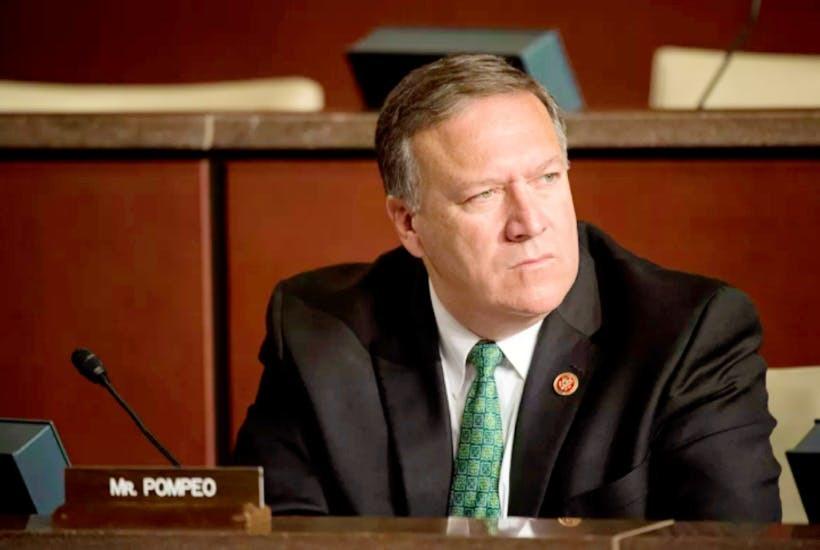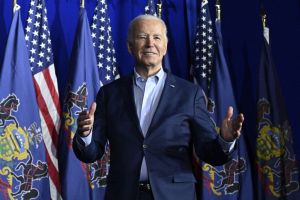The Trump administration’s foreign-policy team is beginning to look a lot like a Marco Rubio foreign policy team. It’s not hard to imagine a generally hawkish Republican like Mike Pompeo serving as Secretary of State under Little Marco, and John Bolton – widely tipped to replace H.R. McMaster as national security adviser – would have turned up sooner or later in any GOP administration, except one led by Sen. Rand Paul. Nikki Haley at the United Nations, meanwhile, has been hailed by neoconservatives as heartily as Bolton was when he served as George W. Bush’s UN ambassador from 2005-6.
The hawks don’t like to be called ‘neoconservatives’, but the neoconservative worldview is their worldview. They place an enormous premium on meddling in the Middle East, no matter that the fruits of U.S. policy there have been nothing but bitter for the past six decades. Even the 1991 Gulf War, a seemingly painless success, only pulled the U.S. deeper into the region’s intractable strategic morass. Yet the Mideast military interventions that have become a chronically self-destructive habit for the U.S. since the first Bush administration are, in neoconservative eyes, a blueprint for how to deal with North Korea and maybe Russia, too. There is simply no problem that bluster or bombs cannot solve.
Donald Trump’s detractors claim that this has always been his view as well, though they insist that some nefarious tie to Moscow dissuades him from rattling his saber at Vladimir Putin. But Trump was more critical of the Iraq War than any other Republican – again with the exception of Senator Paul – and he evidently lacks the commitment to a universal system that underpins both neoconservatism and its center-left twin, liberal interventionism. Those ideologies both believe in using force to make the world more like America. Trump, on the other hand – and paradoxically, given his reputation – respects other countries and even wants to emulate or compete with them. He believes China has outsmarted us in trade, he sees Duterte in the Philippines as the ne plus ultra of tough-on-crime politics, and he treats Putin as a dangerous man who leads a great nation, not as someone to be lectured to like a schoolboy. Bluster and bombs certainly have their place in Trump’s outlook, but he seems to harbor no illusions about saving the world by such means.
Republican doves are a small flock, but Trump’s instinctual realism – his immunity to ideological cant – appeals to voters, who have a similarly accurate untutored understanding of where foreign-policy elites go wrong. Now, however, the president is enclosed by advisors whose ideological hawkishness threatens to catalyse Trump’s natural rhetorical bellicosity into war. George W. Bush did not set out to sacrifice his ‘compassionate conservative’ domestic agenda to endless foreign wars, but once the hawks in his administration gained the opportunity after 9/11, they herded the president in their direction. (A fact he publicly lamented later on.) Will Trump’s new foreign-policy lineup likewise hijack his administration?
Count me sceptical, if not altogether optimistic. This president has sliced through supposedly influential aides and advisors like a chainsaw over the past year. What are the odds that Pompeo and Bolton don’t come to the same end as Rex Tillerson, Gary Cohn, Mike Flynn, Reince Priebus, Steve Bannon, Sean Spicer, Anthony Scaramucci, and, seemingly soon, H.R. McMaster and Jeff Sessions? Trump is ungovernable, which may be a saving grace. It’s understandable enough that he wants foreign-policy personnel who follow his lead in opposing the Iran nuclear deal and playing tough with Kim Jong-un. But can Trump be talked into going to war in Syria to topple Assad or taking a more confrontational approach toward Russia? If an attack on North Korea is coming, it’s not because of the president’s advisors. Trump himself has set a fairly clear line – ‘denuclearization’ on Kim’s part is unlikely to be attainable, but by insisting on it, Trump has given himself maximum room to negotiate while establishing a dominant position going into discussions. This may yet lead to war, but it’s not a foregone conclusion. Unlike neoconservatives and humanitarian interventionists, Donald Trump doesn’t need war to fulfill his dreams. What he wants, with or without war, is victory.


















